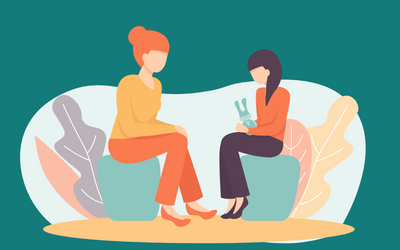Experiencing Pandemic Fatigue? Take Your M.E.D.S.S.

What is Pandemic Fatigue?
The past 18-months of the pandemic have forced us to take strict measures for our safety and take on entirely new routines in our day-to-day lives. What started as what we believed to be a temporary period of extreme lockdowns and physical distancing to curb the spread has now given way to a resigned state of home-confinement where we’ve normalized connecting with our loved ones via virtual video calls and delivered care packages. Phrases of encouragement such as, “see you when this is all over!” and “we’ll make up for this next year!” has all but gone down to a whisper as we’ve learned not to make those kinds of promises anymore almost 2 years in. If this all sounds too familiar, you’re not alone.
In times of crisis, our survival instincts kick-in and our bodies go into “fight or flight mode” wherein our body pumps out higher levels of cortisol and adrenaline to give us the energy and awareness to actively respond to the situation. Unyielding or chronic stress, as what can be experienced in a pandemic without a definitive “end”, can wreak havoc on our physical and mental well-being resulting in a phenomenon as crisis fatigue - or in this case, pandemic fatigue.
The World Health Organization (WHO) has defined “pandemic fatigue” as “feeling demotivated about following recommended behaviors to protect ourselves and others from the virus.” The WHO is leading an initiative that includes public health experts from more than 30 countries to better understand the problem and propose solutions. But from what studies show about crisis fatigue, mental and physical manifestations can include anxiety, panic attacks, mood disorders, denial, numbness as well as digestive problems, respiratory issues, cardiovascular issues, sleep disorders, hair loss or weight gain or loss.
Take Your M.E.D.S.S.
If everything you’ve read so far seems familiar, it's important to acknowledge what you might be going through and take the necessary steps to help take care of yourself. Self-care isn’t simply taking care of oneself. The fact that it has a name implies a higher degree of importance and value. Taking care of yourself is one part of it, but it’s also about learning and unlearning certain ideas. You must learn that it is okay to set healthy boundaries, learn how to say no, learn how to reorganize your priorities such as taking breaks or vacations. When it comes to dealing with pandemic fatigue, we recommend taking your M.E.D.S.S. - an easy mnemonic to help you remember that even the most basic things can be just what the doctor ordered.
M for Meditate
Anyone can practice meditation. It's simple and inexpensive, and it doesn't require any special equipment. You can also practice meditation wherever you find yourself needing it - on a bus, waiting in line, right before going into a stressful call.
Meditation is an umbrella term for the many ways to arrive at a relaxed and clear state of being. There are many types of meditation and relaxation techniques that have meditation components. All share the same goal of achieving inner peace. The benefits of meditation can include:
- Gaining a new perspective on stressful situations
- Building skills to manage your stress
- Increasing self-awareness
- Focusing on the present
- Reducing negative emotions
- Increasing imagination and creativity
- Increasing patience and tolerance
During meditation, you focus your attention and eliminate the stream of jumbled thoughts that may be crowding your mind and causing stress. This process may result in enhanced physical and emotional well-being.
E for Exercise
Move your body. It moves your mind. The mind-body connection is tight. What happens in your body is related to your emotional and mental states. 5 minute walk, 30 minute jog, dancing while cleaning, etc. As long as you keep your body active everyday for even a short amount of time it can help greatly. Active bodies will feel more refreshed in the morning, especially because it can help induce a more deep sleep. In most cases physical activity will improve your mood because it de-stresses and distracts.
D for Diet
Food can either fuel or foil all the good things that you may already be doing to take care of yourself. The right combination of fluids, carbohydrates and protein, eaten at the right time, can help you think better, do better, and decrease fatigue. If you don’t already eat fruits and vegetables then it’s time to add them to your diet. If you’re not used to it, try blending them into a smoothie or adding them to food that you already eat.
S for Sleep
Proper sleep is crucial for self-care as it offers the body and brain time to restore and recover, affecting nearly every tissue in the body. According to the National Sleep Foundation, most adults need at least 7 to 9 hours of sleep21, yet almost one third of Americans are getting less than 6 hours per night. Sleep deprivation increases the risk of health conditions like diabetes, heart disease, and stroke. Prolonged sleep deprivation can also affect concentration and other cognitive functions.
S for Socialize
Disclaimer: when we say socialize, we don’t necessarily mean “like a butterfly.” (Because we know that those situations can also be difficult for some.) Whether you’re a self-proclaimed introvert or extrovert, one thing is true - human beings are social creatures and thrive on social interaction. What’s important for self-care is taking time to periodically connect with the few or handful of people that you care about and who care about you. This can be the family you’re born into, the friends you find, or the people you choose (like an Infinit Care counselor). However many or whoever it is, make sure to surround yourself with people you can lean on when things get tough and you need someone to say, “it’ll be okay.”
Taking your M.E.D.S.S. may seem like basic suggestions for self-care versus the “special” buzz-worthy things countless internet sources suggest you do to “pamper” yourself (and those are also well and good from time to time). But as we try to overcome pandemic fatigue in our own ways, what’s important is to go back to basics and be very intentional and mindful when going through these basic steps so you can reap the full benefits and integrate self-care into your daily life.


